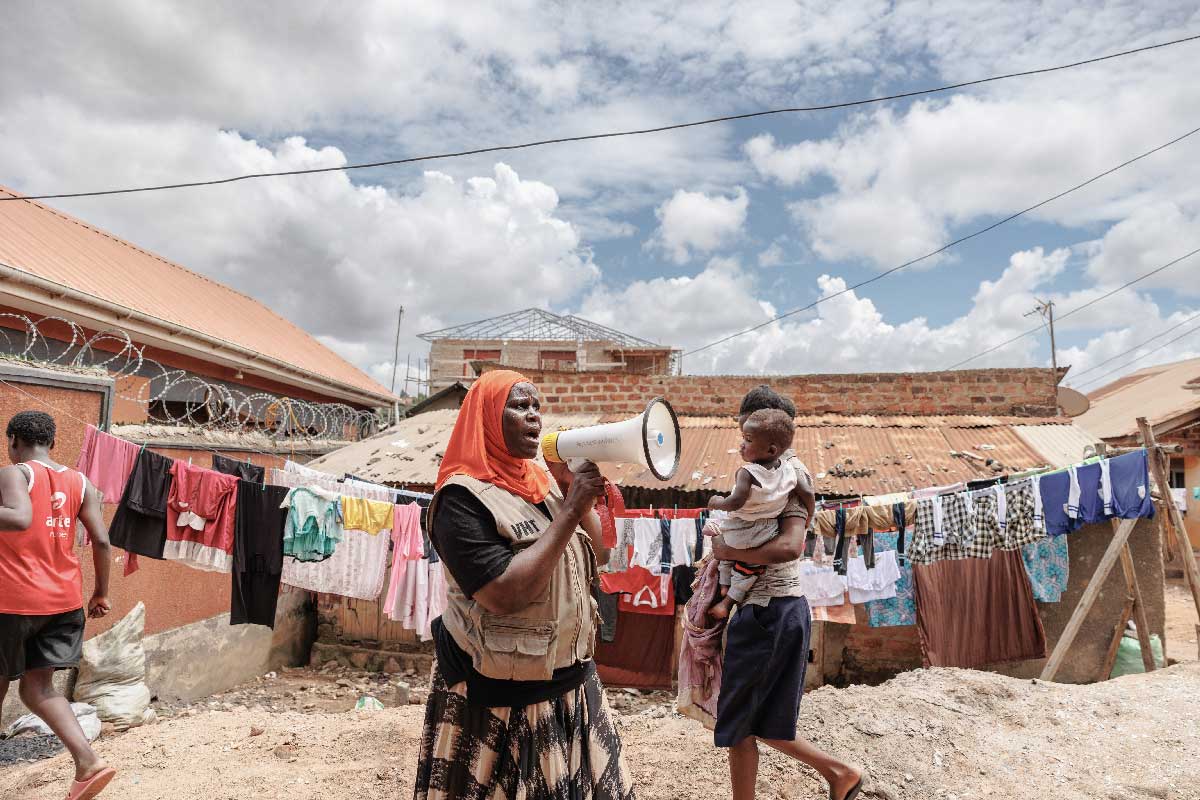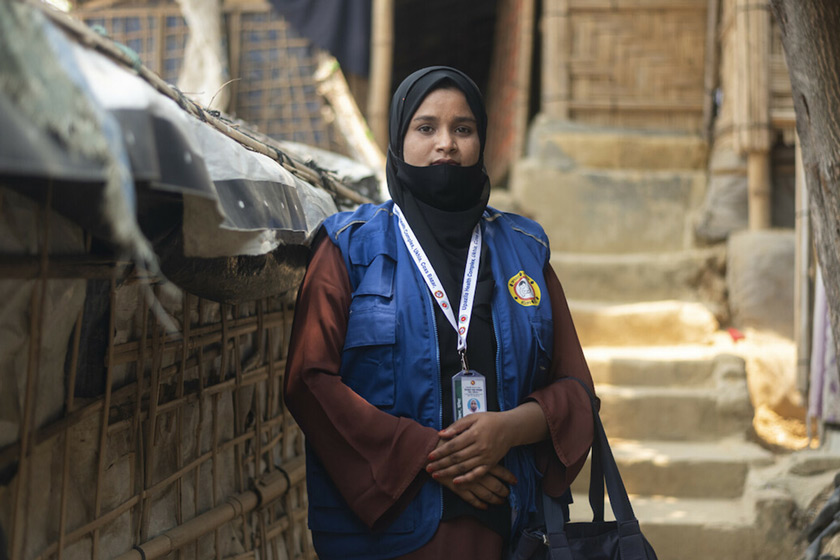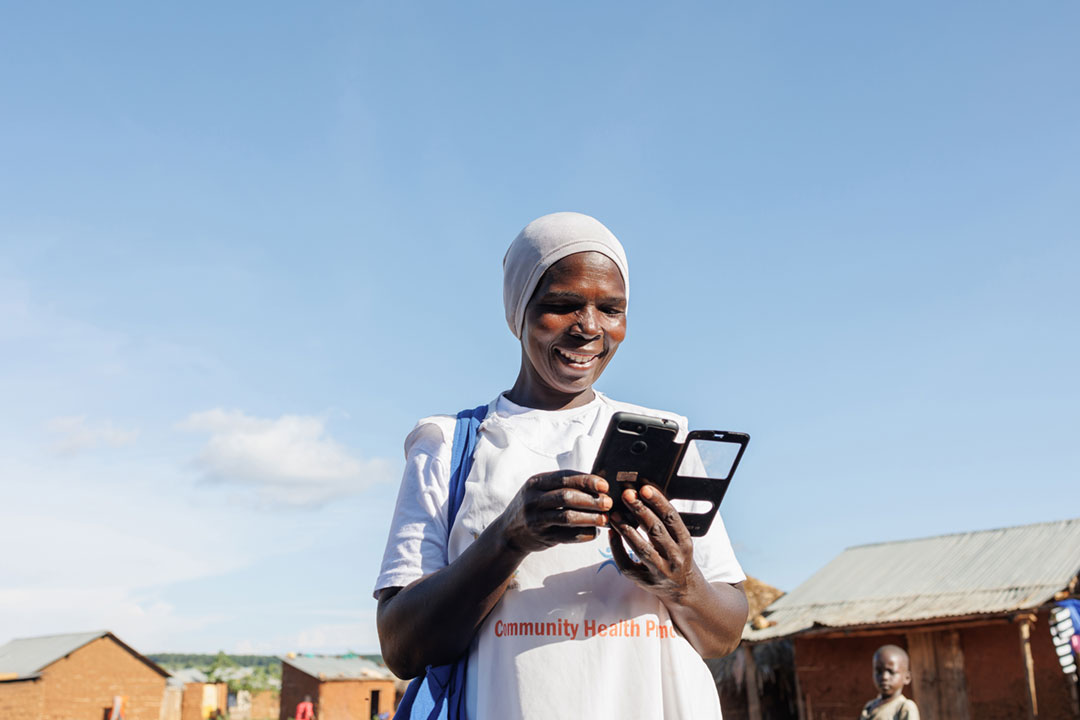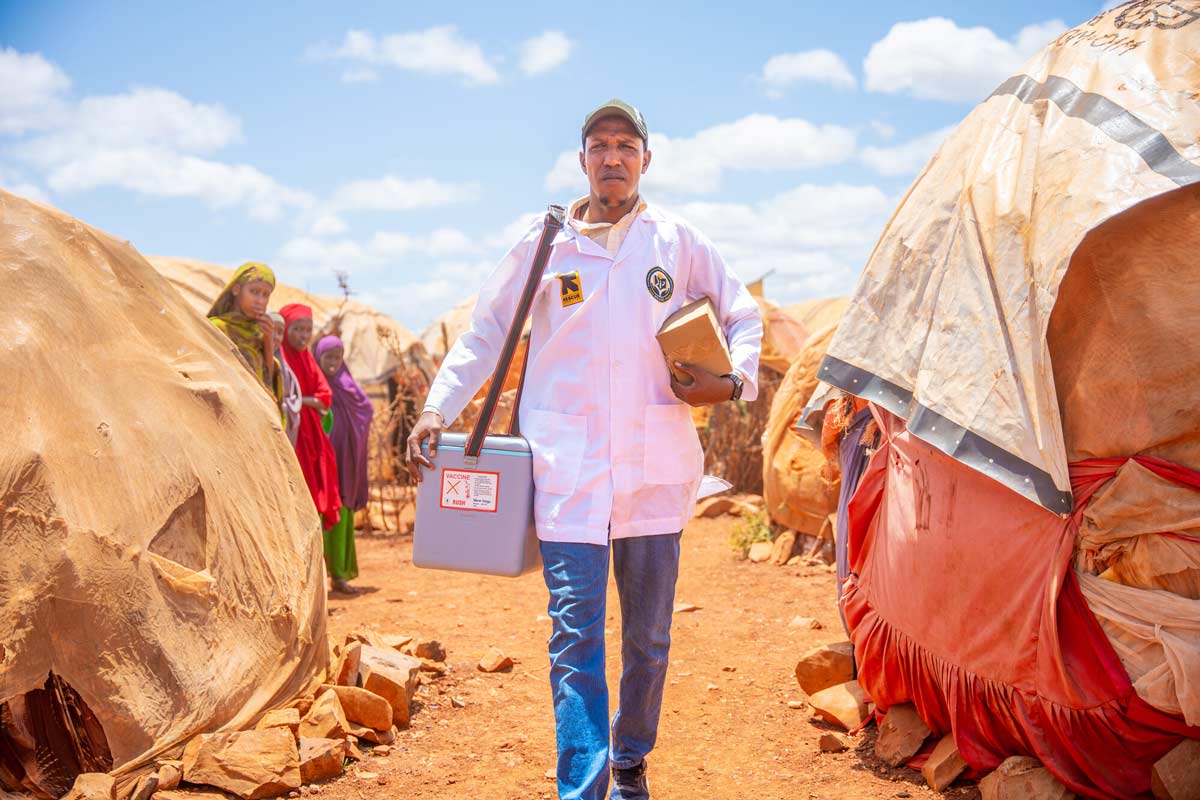EPI at 50: hard problems, simple solutions?
When resources are short, simple imaginative ideas can make all the difference.
- 14 November 2024
- 6 min read
- by Charlotte Mbuh , Ian Jones
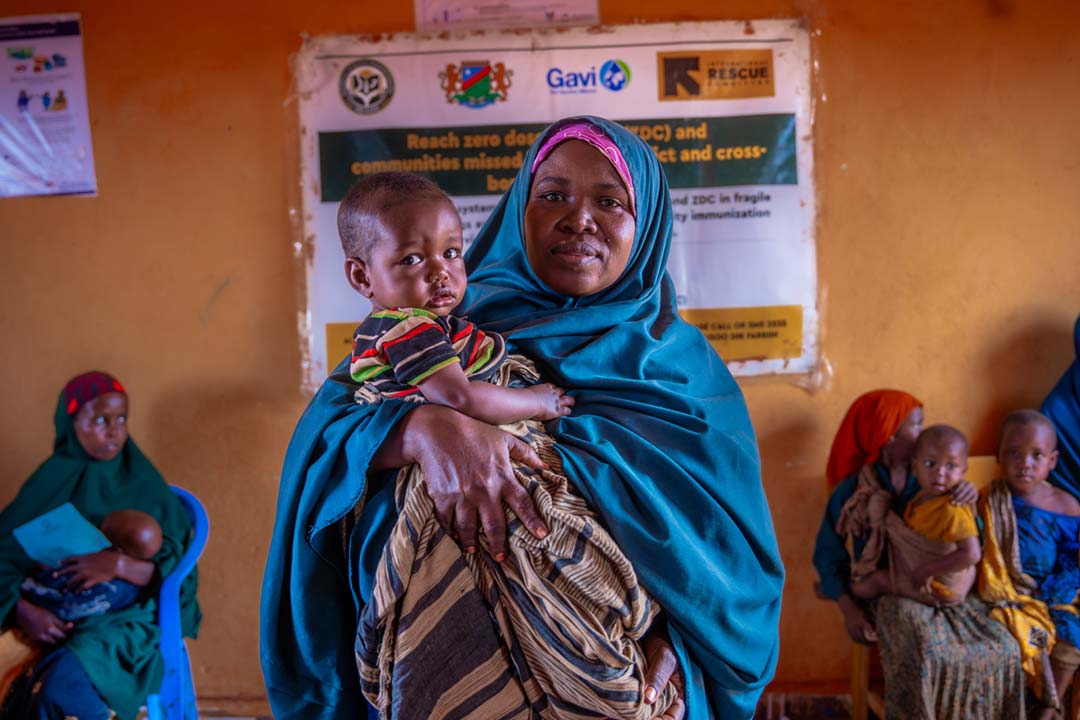
Workers in national immunisation programmes face many challenges, and typically have few resources to play with. Under these circumstances, imaginative ideas that are simple and easy to implement are at a premium. And, as the saying goes, necessity is the mother of invention.
At an online conference of 20,000 health workers from the Global South this past June, immunisation professionals shared some of the simple strategies that they have seen make an impact.
- Using affected families as advocates: it is a tragedy when families lose children to vaccine-preventable diseases, but affected parents can become compelling advocates for vaccination.
"Then came the turn of the family who had lost four children. Speaking, the father of the deceased children began by crying for his dead children when they should have been saved if they had been vaccinated like those of the first family. He began to blame himself, citing responsibility and guilt for the deaths of his children. The emotion was very strong and it aroused a feeling of empathy and solidarity with families who were still resisting having their children vaccinated."
Dr Mathieu Kalemayi Ndjibu
PhD Public Health, International, Lodja, DRC
- Thinking about what might persuade those who are unsure about vaccination: some religious groups may be opposed on principle to vaccination. Finding arguments in favour of vaccination in holy books can help to change minds.
"As part of our associative activities in favour of vaccination, we planned a home visit to a family of a religious obedience resistant to vaccination. The objective was to obtain, through a respectful exchange, the agreement of parents to vaccinate the children targeted by the routine. We have used biblical verses and examples to facilitate understanding."
Metsampito Bamlatol Arthur Fidelis
Coordinator, NGO, Yokadouma, Cameroon
The conference, Teach to Reach 10, was convened by the Geneva Learning Foundation (TGLF), to furnish a peer-learning opportunity for health workers from the national to the sub-district level. In other words, the forum itself was yet another simple gambit with the promise of outsize impact.
- Using every opportunity to raise awareness: people live busy lives and vaccination may be just another thing to think about. Reminders in the community can help to turn an intention to use vaccination services into action.
"In the bush, in terms of health, apart from the health centre, we only find small country grocery stores. It is useful and practical to raise awareness among these traders, because people buy their supplies from them and they are able to pass on messages."
Public Health Physician (MPH)
Ministry of Health, East Region, Madagascar
- Mobilise influential figures, such as religious and social leaders: most people are influenced by people around them – friends, families and notable individuals in the community. Ensuring these influential figures are supportive can encourage individuals and create a positive social attitude to vaccination within a community.
"During the project we detected a child whose parents refused to vaccinate him for cultural reasons. We approached their religious leader, who served as an intermediary and outreach agent to the family, who finally agreed to have their child vaccinated."
Okou Gbouhouri Marius Romeo
Project manager, Movement of the Red Cross and Red Crescent, Abidjan, Yopougon Commune, Côte d'Ivoire
Have you read?
- Using social networks to mobilise communities: with health care staff often short in number, having community members engaged in promoting immunisation can have a great catalytic impact.
"A very outstanding approach was the formation of support groups for antenatal and breastfeeding mothers in which they encourage each other and are empowered with education to improve behaviour change."
Hellen Apondi Osowo, Nurse
Ministry of Health, Bondo Sub-County, Kenya
There were some important recurring themes running through many of the contributions. The first was the value of understanding the root causes of behaviours and responding accordingly. It is easy to assume that, when households do not take up immunisation services, they are either ignorant of or opposed to vaccination. But there are many other reasons for non-vaccination, like lack of time, or the breakdown in relations with communities. Taking time to understand these social dynamics and their underlying causes can help illuminate the best actions to take.
"I have even tried providing immunisation services in the market. What prompted it was the fact that most mothers sell in the markets and often leave home with the younger children very early and return late."
Ful Morine Fuen
Public health specialist (MPH), NGO, Northwest and Southwest Regions, Cameroon
"The major difficulty we have faced in vaccinating children here is the refusal of parents to accept vaccination because of false rumours that vaccines make children sterile as adults. It was a categorical refusal from the parents regarding these rumours. I spoke with the parents in vain, we brought in a leader of this community to make them listen to reason to no avail. We came back as a team of women and men, all with our BCG scars visible to have them accepted. We made them understand that we had all been vaccinated as babies and that did not stop us from procreating by showing the images of our respective families."
Ndomassal Tamadjibe
Public Health Physician (MPH), WHO Country Office, Batha Health Province, Chad
"In my territory of responsibility, a community had suddenly become refractory to vaccination, particularly during a mass campaign against polio. As a reason, the members of this community considered themselves victims of exclusion from paid activities in the health area."
Delphin Badianga Mbumba
Public Health Physician (MPH), NGO, Lisala, DRC
These examples also illustrate the importance of listening to communities, and building relationships so that there are high levels of trust. Trust can act as a buffer when rumours and misinformation start circulating, or when an adverse event is experienced.
"The community appreciated my work through feedback mechanisms which we developed in the unit where clients could comment daily getting immediate feedback. Reading through and reacting positively to the feedback created a trusting relationship between the clients and health care workers."
Evangeline Wakesho Mwandembo
Nurse, Ministry of Health, Taita Taveta, Kenya
With high levels of trust, communities can move from being passive recipients to active participants – helping to create a groundswell of support for immunisation that can help to address local shortages of resources and health workers.
Learn more
"The Who, What and Where of Immunization" is this year's collection of photographs taken by over 1,000 immunisation staff from all over the world. Get the collection: https://www.learning.foundation/immunization-photos
Ahead of Teach to Reach 11, The Geneva Learning Foundation has just released the English-language collection of "Experiences shared". The new compendium includes over 600 health worker experiences about immunisation, climate change, malaria, NTDs, and digital health. A second collection of more than 600 experiences shared by French-speaking participants is also available.
Listen to the Teach to Reach podcast:
- in English on RSS , Apple, Spotify, YouTube or Amazon podcast services.
- En français sur les services de podcast par RSS, Apple, Spotify, YouTube ou Amazon.
Is your organisation interested in learning from health workers? Learn more about becoming a Teach to Reach partner.
